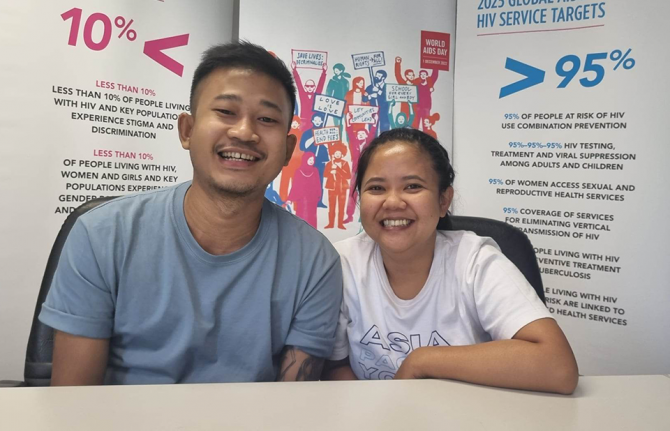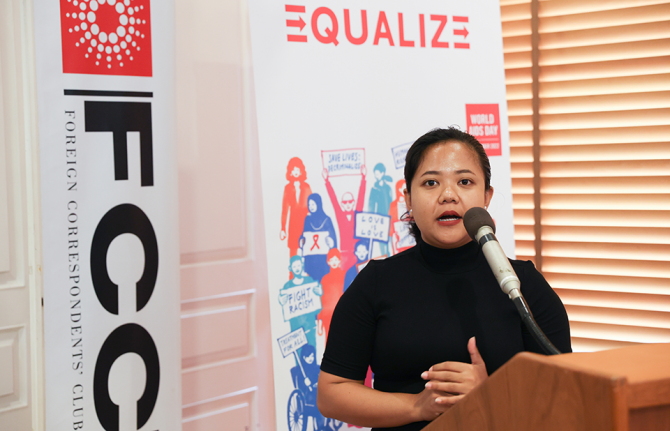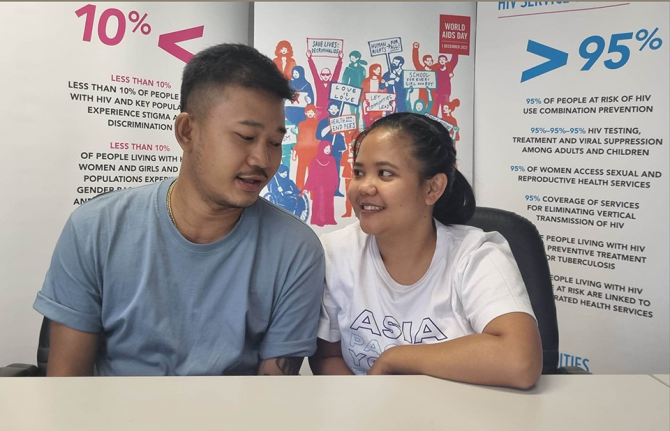



Feature Story
“Silence is better” — How the criminalisation of sex workers keeps exploitation in the shadows
28 February 2023
28 February 2023 28 February 2023As a girl Ikka dreamed of becoming an accountant. She knew her parents could not afford to send her to university, so she resolved to pay for university herself by moving into a brothel. For almost three years she lived and worked there while studying.
Davi’s parents divorced when he was a baby and he was raised by caring grandparents. In high school he led lots of extracurricular activities. He was also gay. Just three months before his final exams Davi was raped by a teacher who threatened to “out” him. He ran away to the city. After a desperate search for work, he landed a job in a massage parlour.
From the Bangkok offices of Youth LEAD and the Asia Pacific Network of People Living With HIV and AIDS (APN+), the pair reflects on those chaotic adolescent years with halting candour. They unpack layers of vulnerability and abuse—the way poverty and trauma can propel young people toward sexual exploitation, higher HIV risk and a cascade of rights violations. And they say that the criminalisation of sex work only made their situations worse.
“No one tells you anything other than that you need to please your client. Just be submissive and quiet. There’s no protection, no information, no nothing,” Ikka remembers.
The brothel would occasionally force the women to undergo HIV and STI testing. Saying ‘no’ wasn’t an option. But when Ikka went to a clinic on her own to get condoms or contraceptives, she was turned away.
Customers sometimes didn’t pay, became violent or refused to stop having sex after even two or three hours. Abusive clients routinely threatened to report them.
“If someone called the police, they would arrest the sex worker. The customer is king,” Davi says. “So silence is better.”
“The police wouldn’t take your report. They think they have more important cases than you,” Ikka adds.
UNAIDS Asia Pacific Human Rights and Law Adviser, Quinten Lataire, explained that criminal laws against sex workers make it very difficult for sex workers to demand basic rights, substantially increasing their risk for abuse and exploitation, such as from law enforcement officers.
“The criminalization of sex workers does not end sex work. It simply makes people go underground, putting them at higher risk of violence and HIV transmission. This has a devastating impact on the sex workers themselves, their clients and the society at large,” Mr Lataire said.
Almost all (99%) new HIV cases in young people in Asia Pacific are amongst key populations and their sexual partners. In Cambodia, Indonesia, Lao PDR, the Philippines and Thailand, youth account for between 40% and 50% of new infections. Since 2010, HIV rates among young people have risen in Afghanistan, Fiji, Malaysia, Pakistan, Papua New Guinea, the Philippines and Timor-Leste.
At ages 18 and 19 respectively, both Ikka and Davi learned that they were HIV positive. In Ikka’s case she was tested as a VISA requirement for a student exchange programme. Her results were forwarded to her school even before she got them and she was kicked out. From breach of confidentiality to discrimination in both education and healthcare settings—one rights violation after another. Ikka had the agency to confirm her HIV status at a community-based sex worker clinic she’d looked up and immediately started treatment.
Davi voluntarily tested with a community organization that visited the massage parlour to conduct sensitization sessions and offer services. He kept his status a secret at work but began attending support meetings on the weekend. He sometimes told the pimp that he was going out to meet a client, handing over the stipend he got from the organization when he got back.
“For eight months after I knew I was positive, I felt like I didn’t want to do sex work, but I needed the money. I told clients to use condoms but some of them would give me more money not to,” Ikka remembers.
The events that finally prompted her to leave the brothel still evoke strong emotions. Her best friend there also contracted HIV.
“I told her, ‘let’s go together to get antiretroviral treatment’. I showed her my medication as evidence. But she didn’t want to go. She would not get support from her parents and if the pimp found out, he would kick her out. She felt it was better to die,” Ikka remembers. Her friend passed away just two months after her diagnosis.
In both cases these young people demonstrated incredible resilience and were supported by community-led organizations with tailored services for sex workers and people living with HIV. Ikka joined an organization addressing sex workers’ rights, health and social support needs. She quickly carved a niche representing the interests and perspectives of young sex workers. She would go on to lead national young key population organizations and sit on the Global Fund’s Youth Council. Today she is the Regional Coordinator of Youth LEAD.
“I told myself I needed to help my community,” Davi says. “I don’t want no more people in my situation; no more students becoming victims of sexual violence; no more 19-year-olds HIV positive. I just chose to leave (the parlour) and volunteer with the community organization instead.” Encouraged and supported by community, Davi would go on to graduate from high school and earn a sociology degree. He is now aiming for a Masters qualification while working as APN+’s Youth Officer.
The issues Ikka and Davi faced remain today.
“I still use a condom, but many clients refuse,” says Rara, a 22-year-old sex worker. “When we’re desperate for money, we have no choice but to agree. In addition to gonorrhea, I got syphilis and got treated for it. Thankfully I’m still HIV negative.”
UNAIDS and the Inter-agency Task Team on Young Key Populations are working to address the inequalities faced by young key populations in Asia Pacific. Learn more about their work.



